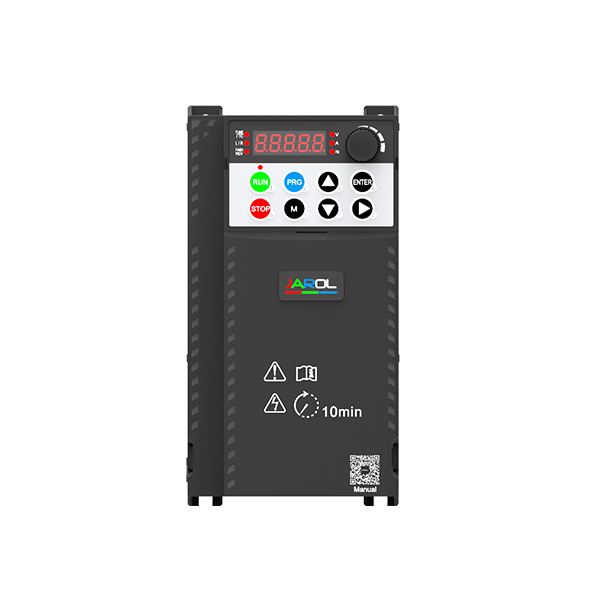Maximizing Efficiency: How High-Performance Frequency Converters Drive Energy Savings
2024-03-13
In today's rapidly evolving industrial landscape, energy efficiency has become a top priority for businesses seeking to reduce operating costs, minimize environmental impact, and comply with stringent regulations. High-performance frequency converters emerge as indispensable tools in this pursuit, offering unparalleled control over motor speed and torque while significantly enhancing energy efficiency across a wide range of applications. In this blog, we'll explore how high-performance frequency converters contribute to energy efficiency and unlock substantial savings for businesses worldwide.
1. Variable Speed Control:
One of the key ways high-performance frequency converters boost energy efficiency is through variable speed control of electric motors. Unlike traditional fixed-speed motors, which run at constant speeds regardless of load requirements, frequency-controlled motors adjust their speed according to real-time demand. By matching motor speed to the specific requirements of the application, high-performance frequency converters eliminate energy wastage associated with running motors at full speed when it's unnecessary, resulting in substantial energy savings.
2. Optimal Process Control:
High-performance frequency converters enable precise control over motor speed and torque, allowing for optimal process control in industrial applications. Whether it's regulating the flow of fluids in pumping systems, adjusting conveyor speeds in material handling operations, or controlling the speed of fans and blowers in HVAC systems, frequency-controlled motors optimize energy usage by delivering just the right amount of power needed to meet operational demands.
3. Soft Starting and Stopping:
Traditional motor starters, such as direct-on-line (DOL) starters or star-delta starters, often result in sudden spikes in energy consumption during motor starting, leading to inefficiencies and mechanical stress on equipment. High-performance frequency converters, on the other hand, facilitate soft starting and stopping of motors, gradually ramping up or down motor speed to reduce inrush currents and minimize energy spikes. This gentle starting and stopping process not only enhances energy efficiency but also prolongs the lifespan of motors and reduces maintenance costs.
4. Energy Recovery:
In applications where motors decelerate rapidly, such as braking or load reversal scenarios, high-performance frequency converters can harness regenerative braking capabilities to recover and reuse energy that would otherwise be dissipated as heat. By converting kinetic energy into electrical energy and feeding it back into the power supply, frequency converters improve overall system efficiency and reduce energy consumption, especially in applications with frequent start-stop cycles or variable loads.
5. Energy Optimization Features:
Many high-performance frequency converters come equipped with advanced energy optimization features designed to further enhance energy efficiency. These features may include automatic energy optimization algorithms, sleep modes, and eco-modes that adjust motor speed and power consumption based on load conditions, time of day, or user-defined parameters. By continuously monitoring and optimizing energy usage, frequency converters ensure maximum efficiency and minimize waste without compromising performance.
6. Load Adaptation and Flexibility:
High-performance frequency converters offer unparalleled flexibility and adaptability to varying load conditions, allowing motors to operate efficiently across a wide range of operating speeds and torque levels. Whether it's handling fluctuating process demands, accommodating changes in production schedules, or adjusting to seasonal variations in temperature or humidity, frequency-controlled motors can dynamically adapt their speed and power consumption to maintain optimal efficiency under any circumstances.
In conclusion, high-performance frequency converters play a pivotal role in driving energy efficiency and sustainability in industrial applications. By enabling variable speed control, optimal process control, soft starting and stopping, energy recovery, and advanced energy optimization features, these versatile devices empower businesses to maximize energy savings, minimize environmental impact, and achieve greater operational efficiency and profitability. As energy efficiency continues to be a top priority for businesses worldwide, high-performance frequency converters stand as indispensable tools for achieving these goals and shaping a more sustainable future.



